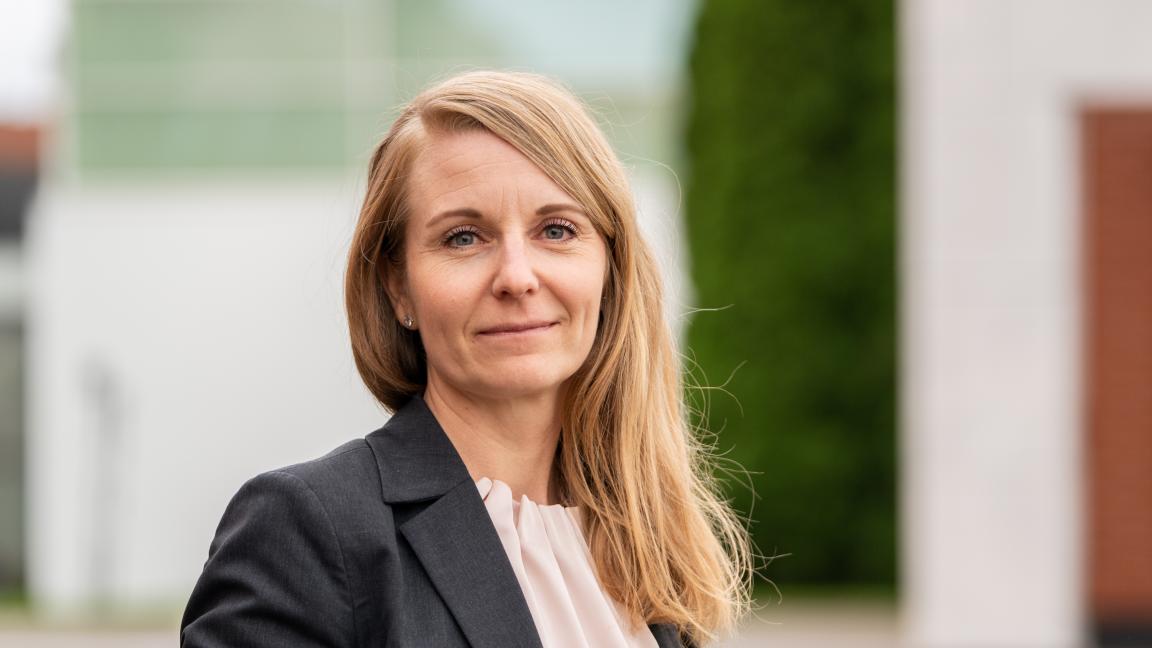According to Johanna Jansson, the post-pandemic confrontation where management demands a return to the office while employees want to remain remote easily leads to a stalemate. As remote work is the biggest change in working life since the Industrial Revolution, these growing pains are natural – but the solutions require a new way of thinking.
Jansson's research delves into how human resource management practices (HR practices) should be implemented in new work environments. Success requires looking at the whole puzzle.
At the core of the approach is a shift from control to coordination, as remote work is based on the employee's autonomy over their own work. The research presents a three-level model as a recipe for success, where organisational design, the supervisor-subordinate relationship, and the employee's role must work together seamlessly.
– Many companies try to adapt to remote work by updating individual HR practices, which in itself is a good thing. However, it's only part of the solution. If the organisation's basic structure is still designed only for office work, tweaking individual practices is like putting winter tires on a convertible. You might get a little more grip, but the ride is still inefficient and uncomfortable because the car's structure is wrong for winter conditions, Jansson explains.
Trust and responsibility replace control
According to the research, the organisation must design structures that support trust and autonomous work. It must be clearly defined what is expected of employees in return for remote work arrangements. For example, innovation, organisational culture, and knowledge sharing must be nurtured in all work models.
Simply demanding office attendance, on the other hand, frustrates employees, so the issue should be approached from the perspective of remote work autonomy and its associated responsibility.
The dissertation revealed that the interaction between supervisors and subordinates is often unbalanced: supervisors strive to maintain contact, but employees are now expected to take a more active role. Without a reciprocal approach, both the supervisor-subordinate relationship and the organisation's trust-based operating models suffer.
– The employee must consider how their actions support the success of the entire team and organisation. In remote work, the focus cannot be solely on personal preferences. One must also critically examine their own remote work skills, such as self-leadership, technology proficiency, and digital interaction skills, Jansson emphasises.
The research is a call for an empathic dialogue where both parties step into each other's shoes. Instead of discarding good remote work practices and forcing people back to the office, solutions should be sought together where both parties are flexible in building a modern workplace.
– The results of the research are comforting, as they show that the remote work confrontation can be resolved. When all three levels are taken into account in the implementation of HR practices, remote work can generate mutual benefits that enhance productivity and well-being, Jansson concludes.
Dissertation
Jansson, Johanna (2025) Balancing Employee Preferences and Organizational Expectations for Mutual Gains: A Multilevel Approach to Implementing HR Practices in Remote Work Arrangements. Acta Wasaensia 562. Doctoral Dissertation. University of Vaasa.
Public Defence
The public examination of M.Sc. (Econ.) Johanna Jansson's doctoral dissertation, "Balancing Employee Preferences and Organizational Expectations for Mutual Gains: A Multilevel Approach to Implementing HR Practices in Remote Work Arrangements," will be held on Friday, 3 October, 2025, at 12:00 PM in Kokkola (Kokkola University Consortium Chydenius, Ulappa Hall, Talonpojankatu 2B, Kokkola).
The defence can also be followed remotely via Zoom: https://uwasa.zoom.us/j/61537335532?pwd=KIE1InJX2wdQSr7zrJ3YMRIi4daxpw.1
Password: 061253
The opponent will be Professor Jonna Koponen (University of Eastern Finland) and the Custos will be Professor Liisa Mäkelä.
Johanna Jansson, tel. +358 40 480 7570, johanna.jansson@centria.fi
Johanna Jansson (née Nousiainen) was born in Västerås, Sweden, in 1982. She completed her matriculation examination in 2001 at Raumanmeri Upper Secondary School in Rauma and graduated with a Master of Science in Economics and Business Administration from Åbo Akademi University in 2007, majoring in accounting. Jansson works as Director (RDI) at Centria University of Applied Sciences, which has campuses in Kokkola, Jakobstad, and Ylivieska.
